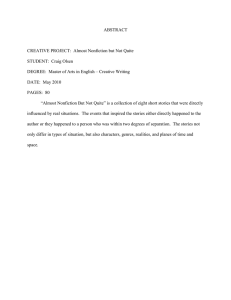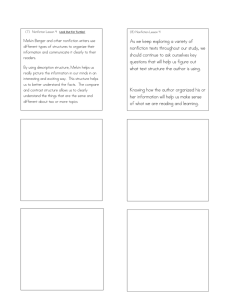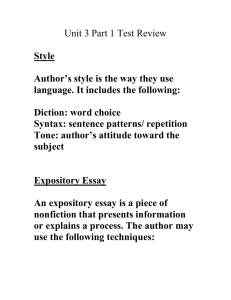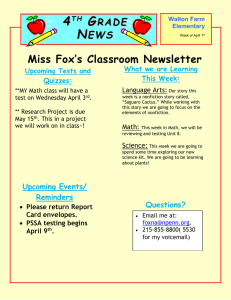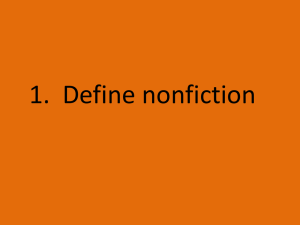Document 14363330
advertisement
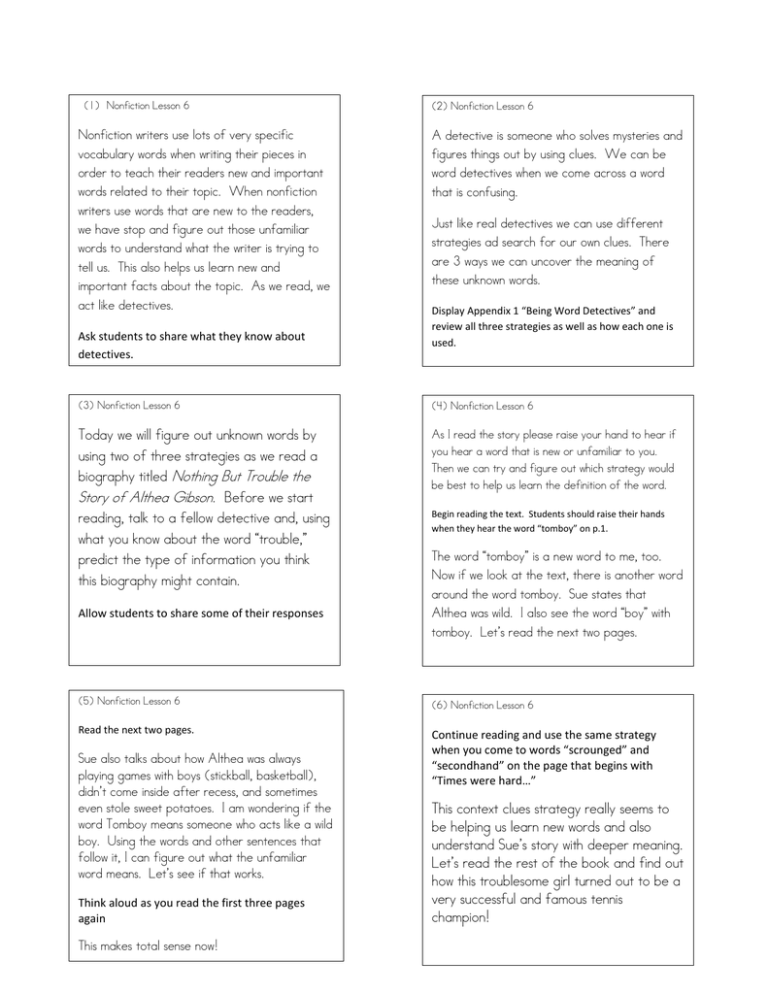
(1) Nonfiction Lesson 6 (2) Nonfiction Lesson 6 Nonfiction writers use lots of very specific A detective is someone who solves mysteries and vocabulary words when writing their pieces in figures things out by using clues. We can be order to teach their readers new and important word detectives when we come across a word words related to their topic. When nonfiction that is confusing. writers use words that are new to the readers, we have stop and figure out those unfamiliar words to understand what the writer is trying to tell us. This also helps us learn new and important facts about the topic. As we read, we act like detectives. Ask students to share what they know about detectives. Just like real detectives we can use different strategies ad search for our own clues. There are 3 ways we can uncover the meaning of these unknown words. Display Appendix 1 “Being Word Detectives” and review all three strategies as well as how each one is used. (3) Nonfiction Lesson 6 (4) Nonfiction Lesson 6 Today we will figure out unknown words by using two of three strategies as we read a biography titled Nothing But Trouble the Story of Althea Gibson. Before we start reading, talk to a fellow detective and, using As I read the story please raise your hand to hear if what you know about the word “trouble,” predict the type of information you think you hear a word that is new or unfamiliar to you. Then we can try and figure out which strategy would be best to help us learn the definition of the word. Begin reading the text. Students should raise their hands when they hear the word “tomboy” on p.1. The word “tomboy” is a new word to me, too. this biography might contain. Now if we look at the text, there is another word Allow students to share some of their responses Althea was wild. I also see the word “boy” with around the word tomboy. Sue states that tomboy. Let’s read the next two pages. (5) Nonfiction Lesson 6 (6) Nonfiction Lesson 6 Read the next two pages. Continue reading and use the same strategy when you come to words “scrounged” and “secondhand” on the page that begins with “Times were hard…” Sue also talks about how Althea was always playing games with boys (stickball, basketball), didn’t come inside after recess, and sometimes even stole sweet potatoes. I am wondering if the word Tomboy means someone who acts like a wild boy. Using the words and other sentences that follow it, I can figure out what the unfamiliar word means. Let’s see if that works. Think aloud as you read the first three pages again This makes total sense now! This context clues strategy really seems to be helping us learn new words and also understand Sue’s story with deeper meaning. Let’s read the rest of the book and find out how this troublesome girl turned out to be a very successful and famous tennis champion!
